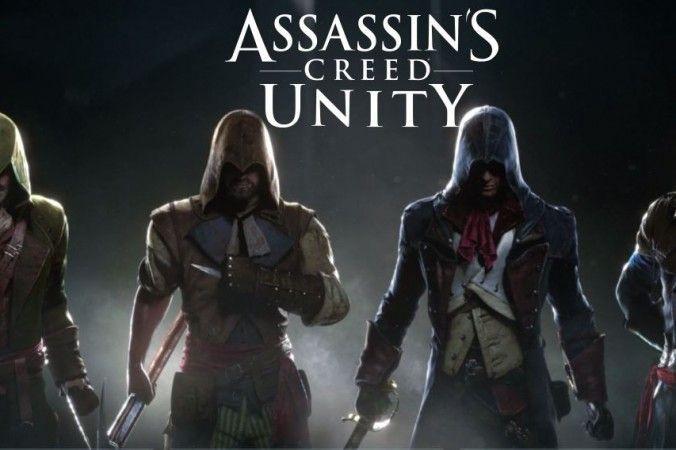'Assassin's Creed Unity' Release Date This Fall: In-Game Fighting Will Be 'Much More Challenging' Than Previous Titles, Says Creative Director

Ubisoft’s next-gen only “Assassin’s Creed Unity” will hit shelves on Oct. 28 for the Xbox One, PC and PlayStation 4. Last week, we spoke to Alex Amancio, the game’s creative director, to discuss a number of in-game features, including how historically accurate “Unity” will be, and how side missions will contribute to the title’s overall gameplay.
Yes, it’s a video game, and like many science fictions films, it doesn’t have to be entirely factual to be fun. Still, Amancio insists “Unity” will be based in historical accuracy, and that his team of developers took a number of measures to ensure the game paid homage to the tumultuous French Revolution, a time of radical change and political upheaval.
“Assassin’s Creed Unity” is the seventh main installment in the franchise and the successor to last year’s “Assassin’s Creed IV: Black Flag.” The game takes place in the city of Paris during the French Revolution and follows main protagonist Arno Dorian’s quest to rise through the ranks of the assassin brotherhood.
“We went to Paris a couple of times, we have access to historians, we visited museums, the city of Paris gave us maps to building plans,” Amancio said. “We used historians to validate all of our narratives, the story, we made sure this is the closest thing to time travel you could have.”
Certain locations in the game are also extremely accurate, and it even took one senior level designer two years to recreate the Notre Dame Cathedral in painstaking detail.
He also talked about the game’s side missions, of which there are hundreds. He pointed out a particular mission, where you can track down a killer and put him in jail.
“These people are actually talking about a murder,” he said. “This is the first clue when you find a side mission. Then you find a second clue, you see the dead body and find out it’s a one-star mission. Then you can accept, and you can follow the clues and interrogate these people and can accuse someone and put them in jail. All of these missions provide you with something that will help with Arno’s progression. Maybe money, maybe a weapon, maybe a skill.”
Even if you choose to skip a few side quests, your mission won’t be hindered or hurt.
“Even if you only do 20 percent, if that 20 percent is different, you’ll still be creating your own unique story.”
Last week, we discussed the size of the game, which wouldn’t have fit on the Xbox 360 or PlayStation 3. One of the coolest features of “Unity” is the size of the crowd, which can be “cranked up” to 5,000 people.
“If people see political stuff happen, they will actually react. It’s AI-driven, this is not scripted. The crowd will react, run away, it can be different every time.”
The crowd can be somewhat volatile, as happened in the actual French Revolution.
“People in the crowd, they won’t be pushed around. Sometimes they’re armed,” Amancio told us. “Sometimes they’ll actually fight back. If other people see that happening, they’ll join in. It depends on where you are, it’s never the same experience.”
Player mechanics in “Unity” are somewhat different than previous titles. There's also an improved stealth mode, where Arno can hide behind objects if he chooses not to fight. He can also traverse buildings differently.
“You can now parkour up and down. It’s much more dynamic,” Amancio explained.
He also discussed the added difficulty in the game’s combat sequences.
“We made the fighting in this game much more challenging. We wanted you to play like an assassin, so we made the fight a lot tougher. Dodge, parry, block. Arno’s a pretty brutal assassin.”
Excited for "Unity?" Leave a comment below.
© Copyright IBTimes 2024. All rights reserved.





















